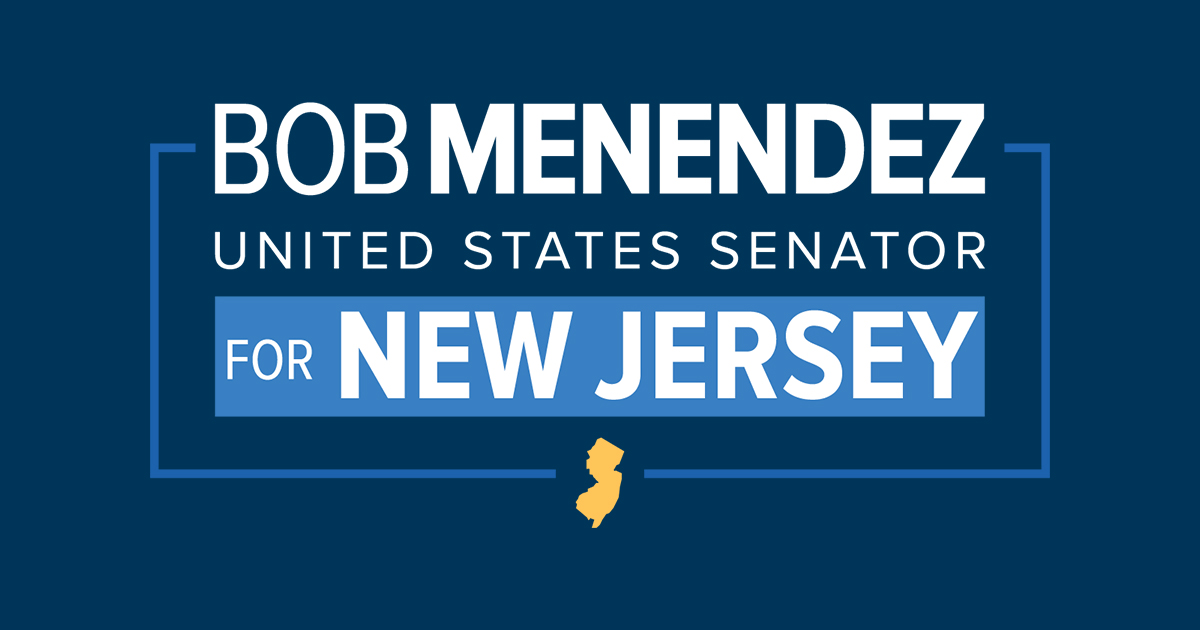Source: United States Senator for New Jersey Bob Menendez
WASHINGTON, D.C. – U.S. Senators Bob Menendez (D-N.J.), John Boozman (R-Ark.) and Majority Leader Sen. Chuck Schumer (D-N.Y.) today called on the Biden Administration to include an expansion in the number of Medicare graduate medical education (GME) positions in the President’s 2024 Federal Fiscal Year budget request. In a letter to the Director Office of Management and Budget (OMB), Shalanda Young, the senators urged the OMB to commit to investing in the physician workforce.
“The ongoing COVID-19 pandemic highlights the need for policies to support physicians and other health care workers, including the urgent need to bolster physician training,” wrote the senators to Director Young. “[W]e urge you to commit to investing in the physician workforce today to ensure Americans are able to access physician care in the future.”
The U.S. is expected to face a shortage of up to 124,000 physicians by 2034, with projected shortages in both primary care and specialty physicians, as a large portion of the physician workforce is nearing retirement age.
The bipartisan Resident Physician Shortage Reduction Act of 2021 sponsored by Sens. Menendez, Boozman and Schumer would gradually raise the number of Medicare GME positions by 2,000 per year for seven years, for a total of 14,000 new positions. This bill has garnered support from over 200 House members and more than a third of senators from both sides of the aisle.
“We must increase Federal support for GME and physician training now to meet the needs of our diverse and growing nation, ensure health care access and delivery, improve workforce diversity and health equity, and prepare for the next public health crisis,” the senators continued. “We urge you to include Medicare GME expansion in the FY 2024 budget. Doing so would further demonstrate the Administration’s commitment to health care delivery and equity, and its support for health care workers.”
Sen. Menendez, who successfully secured 1,000 new GME slots in the FY21 spending deal, last week co-lead a bipartisan group of colleagues on the introduction of the Training Psychiatrists for the Future Act to add 400 new physician residency positions per year funded by Medicare to teaching hospitals for training new physicians in psychiatry and psychiatry subspecialties.
The text of the letter can be found below and downloaded HERE.
Dear Director Young:
We write today to urge the Biden Administration to include in the President’s Federal Fiscal Year (FY) 2024 budget language to increase the number of Medicare graduate medical education (GME) positions. The ongoing COVID-19 pandemic highlights the need for policies to support physicians and other health care workers, including the urgent need to bolster physician training. As the Congressional sponsors of the Resident Physician Shortage Reduction Act of 2021, we urge you to commit to investing in the physician workforce today to ensure Americans are able to access physician care in the future.
Americans face substantial barriers to care, particularly in rural and underserved areas, due to health care workforce shortages. The United States faces a shortage of up to 124,000 physicians by 2034, with projected shortages in both primary care and specialty physicians. A large portion of the physician workforce is nearing retirement age, and growing concerns about physician burnout, documented in the literature and worsened by COVID-19, suggest physicians will be more likely to accelerate rather than delay retirement. The COVID-19 pandemic also exposed shortfalls in the nation’s health care delivery infrastructure and exacerbated access issues in rural and underserved areas.
We were encouraged to see the Office of the Surgeon General’s (OSG) May 2022 health workforce advisory highlight the high rates of stress, frustration, and anxiety among health care workers during the COVID-19 pandemic. The Advisory’s recommendations to address health workforce burnout and invest in the entire health care system included expanding GME positions. Moreover, the Department of Health and Human Services’ Office of the Assistant Secretary for Planning and Evaluation released a report raising concerns about the availability of GME residencies and the limited capacity at existing residency programs due to the effect of the COVID-19 pandemic on enrollment. We must increase Federal support for GME and physician training now to meet the needs of our diverse and growing nation, ensure health care access and delivery, improve workforce diversity and health equity, and prepare for the next public health crisis.
Congress supports teaching hospitals’ mission to train physicians by authorizing the Medicare program to reimburse them for costs associated with training medical residents. The Balanced Budget Act of 1997 (P.L. 105-33) capped the number of residents each teaching hospital could claim for Medicare reimbursement purposes, which for decades has limited the nation’s ability to keep pace with health care delivery demand. In 2020, for the first time since the BBA’s enactment, Congress created new Medicare GME positions in the bipartisan Consolidated Appropriations Act, 2021 (CAA) (P.L. 116-260). The OSG’s advisory highlighted the CAA’s creation of 1,000 new Medicare GME positions but cautioned that “many more are still needed.”
While the CAA’s GME provisions were encouraging, we need additional Medicare GME positions to help alleviate physician shortages, stabilize the nation’s health care delivery infrastructure, and address health inequities. The bipartisan Resident Physician Shortage Reduction Act of 2021 would gradually raise the number of Medicare GME positions by 2,000 per year for seven years, for a total of 14,000 new positions. This popular bill has garnered support from over 200 House members and more than a third of senators from both sides of the aisle.
We urge you to include Medicare GME expansion in the FY 2024 budget. Doing so would further demonstrate the Administration’s commitment to health care delivery and equity, and its support for health care workers. We appreciate your leadership and look forward to partnering with you to strengthen the nation’s physician workforce.
Sincerely,
###
